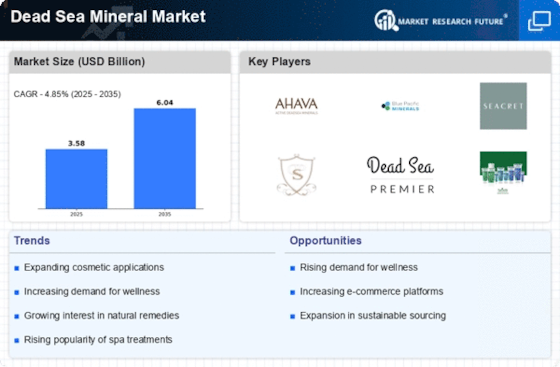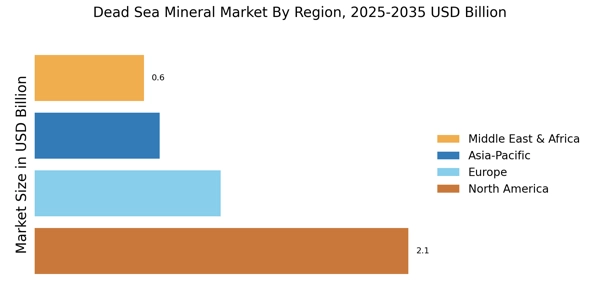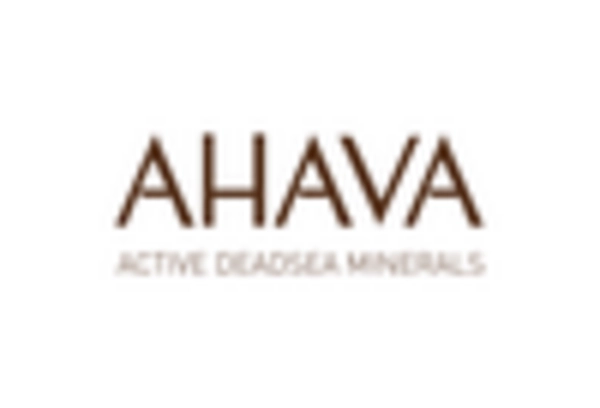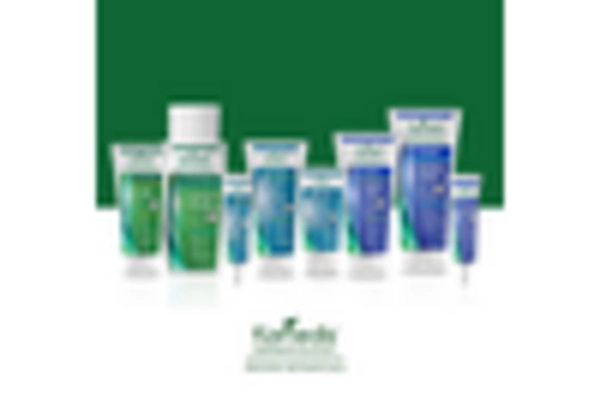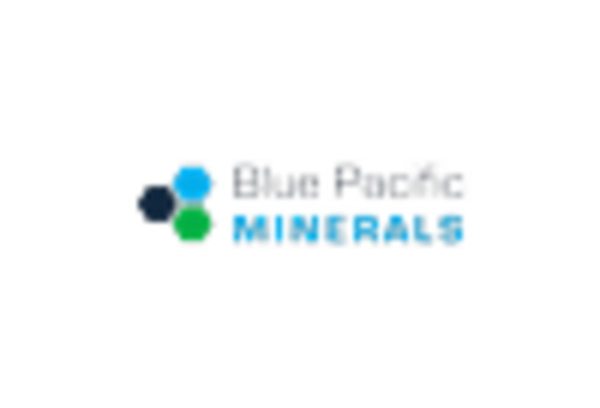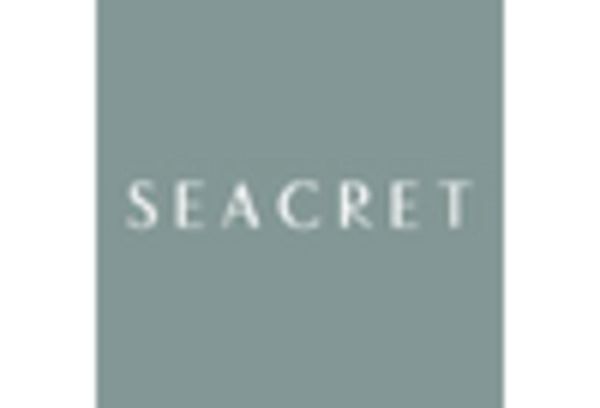Growing Awareness of Skin Health
The increasing awareness of skin health among consumers appears to be a pivotal driver for the dead sea mineral Market. As individuals become more informed about the benefits of natural minerals, the demand for products containing Dead Sea minerals is likely to rise. Research indicates that minerals such as magnesium, calcium, and potassium found in Dead Sea salts can enhance skin hydration and improve overall skin appearance. This trend is further supported by the rise in social media influencers promoting skincare routines that incorporate these minerals. Consequently, the Dead Sea Mineral Market is experiencing a surge in product development aimed at addressing specific skin concerns, thereby attracting a broader consumer base.
Expansion of E-commerce Platforms
The expansion of e-commerce platforms is transforming the way consumers access Dead Sea mineral products, thereby driving the Dead Sea Mineral Market. With the rise of online shopping, consumers can easily explore a wide range of products from various brands, often accompanied by detailed information about the benefits of Dead Sea minerals. Data suggests that online sales of skincare and wellness products have surged, with many consumers preferring the convenience of purchasing from home. This shift not only broadens the market reach for Dead Sea mineral products but also allows for targeted marketing strategies that can effectively engage potential customers. Consequently, the Dead Sea Mineral Market is poised for growth as e-commerce continues to evolve.
Rising Popularity of Spa Treatments
The resurgence of spa treatments utilizing Dead Sea minerals is contributing to the growth of the Dead Sea Mineral Market. Spas and wellness centers are increasingly incorporating Dead Sea mud and salts into their therapeutic offerings, capitalizing on the minerals' reputed healing properties. According to industry reports, the spa sector has seen a notable increase in clientele seeking natural and holistic treatments, with Dead Sea mineral-based therapies being particularly sought after. This trend not only enhances the visibility of Dead Sea minerals but also encourages consumers to purchase related products for home use. As a result, the Dead Sea Mineral Market is likely to benefit from this growing interest in spa experiences.
Increased Interest in Sustainable Products
The growing interest in sustainable and eco-friendly products is influencing the Dead Sea Mineral Market. Consumers are increasingly seeking products that are not only effective but also environmentally responsible. Dead Sea minerals, often harvested through sustainable practices, align well with this consumer preference. As brands emphasize their commitment to sustainability, they are likely to attract a more conscientious consumer base. Market data indicates that products labeled as natural or organic are experiencing higher sales, suggesting that the Dead Sea Mineral Market could see a similar trend as companies adopt sustainable practices in their product lines. This shift may enhance brand loyalty and consumer trust.
Diverse Applications in Cosmetics and Personal Care
The diverse applications of Dead Sea minerals in cosmetics and personal care products are driving growth in the Dead Sea Mineral Market. These minerals are increasingly being incorporated into a variety of formulations, including facial masks, scrubs, and moisturizers, due to their beneficial properties. The cosmetics sector has shown a marked increase in the use of natural ingredients, with Dead Sea minerals being particularly favored for their skin-enhancing qualities. Market analysis indicates that the demand for mineral-based cosmetics is on the rise, suggesting that the Dead Sea Mineral Market is well-positioned to capitalize on this trend. As consumers continue to seek innovative and effective beauty solutions, the relevance of Dead Sea minerals is likely to grow.


